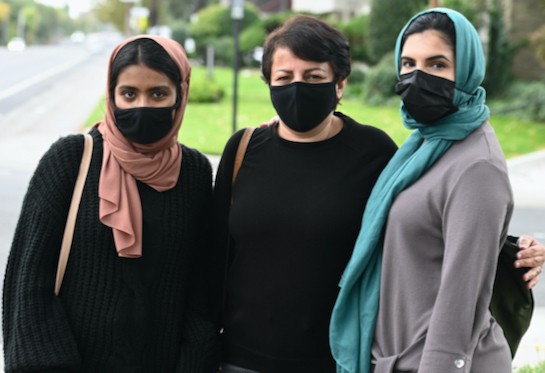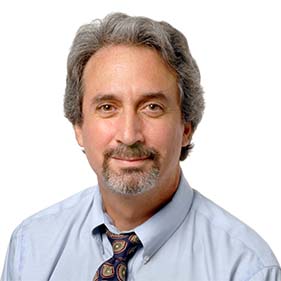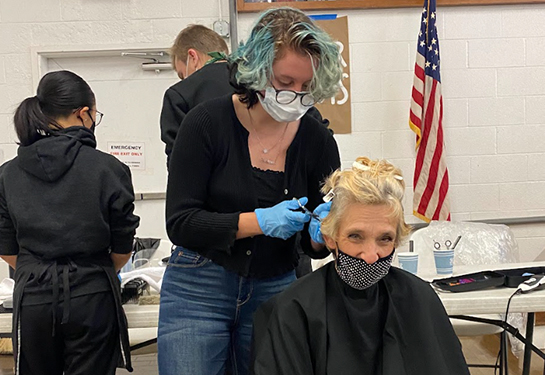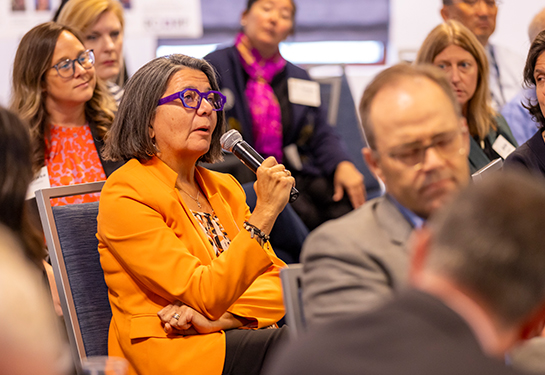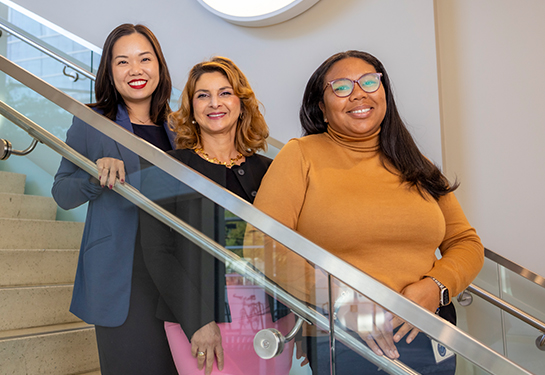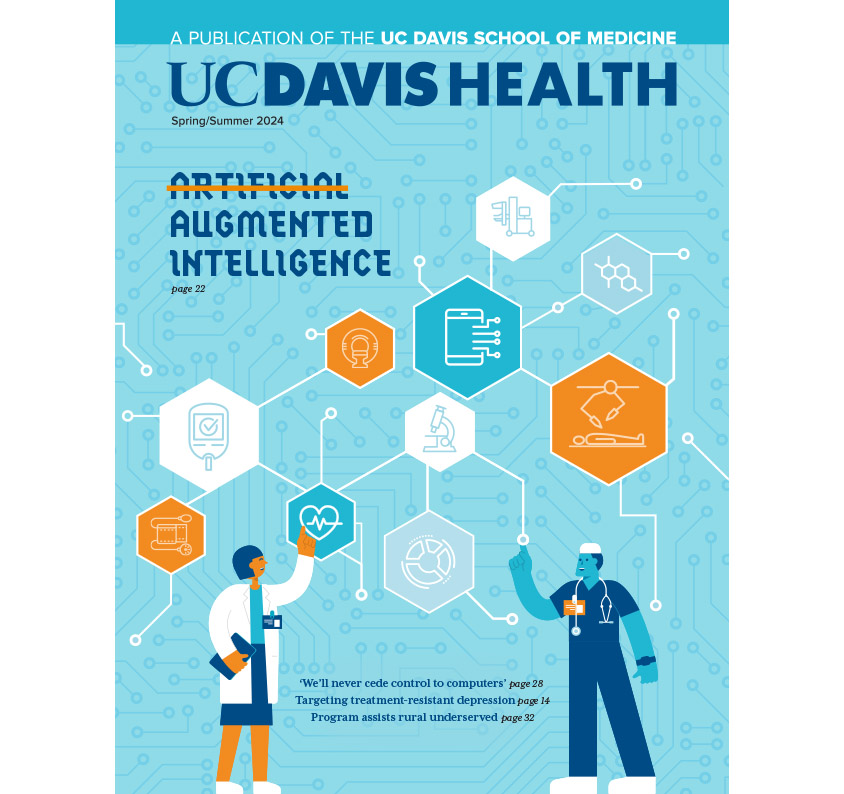UC Davis students help Afghan refugees navigate life in Sacramento
Multidisciplinary effort creates cultural bridge to dozens of families
Photo: Students Sasha Afroz of UC Davis, Niloofar Jannesar of the University of the Pacific and Maha Kazmi of UC Davis School of Medicine prepare to visit the home of a refugee family.
Newcomers from Afghanistan who resettle in Sacramento are learning to adjust to their new surroundings, thanks to students from the UC Davis School of Medicine and Betty Irene Moore School of Nursing.
The students volunteer in a new initiative called Refugee Interprofessional Community Engagement, or RICE. In partnership with the University of the Pacific (UOP) and local nonprofit Opening Doors, RICE is designed to equip vulnerable populations with the knowledge needed to restart their lives in a foreign country.
Sacramento has long been a prominent destination for Afghan refugees. The initiative started in 2017 but stalled at the onset of the pandemic. However, RICE leaders reactivated the program due to the exodus of refugees after the U.S. withdrew military personnel from Afghanistan.
The immigrants, refugees and asylees absorb valuable lessons about navigating this new community, such as how to find a job or how to advocate for their children’s education. And the students gain valuable experience by interacting with families who escaped Afghanistan, often under traumatic conditions.
“My biggest motivation in joining this is, with everything going on in Afghanistan, I felt very hopeless as far as not being able to do anything as this massive humanitarian crisis was going on,” said third-year medical student Harveen Sekhon.
“This is my whole reason for coming here to medical school, to serve the absolute underserved,” she added. “These refugees are escaping horrors in Afghanistan.”
Sekhon and her mentor, Michael Wilkes, a UC Davis School of Medicine professor of internal medicine, were instrumental in connecting with Opening Doors and activating RICE.
“From an educational perspective, the content of what we’re teaching and the experience and skills that the students are gaining is incredibly important,” Wilkes said. “This provides an amazing opportunity for interprofessional education.”
Each RICE team includes four people who serve as cultural ambassadors: a School of Medicine student; a School of Nursing student, such as an aspiring physician assistant or future nurse practitioner; a University of the Pacific social work student and a language interpreter who is an undergraduate student from UC Davis.
Each team is assigned a family, whom they visit monthly, usually on a Saturday, from October through May. The team befriends the family and serves as a resource for whatever information they may need. Students are free to provide any guidance, including an explanation of how to navigate the health care system, or use public transportation.
As many as 10 teams are involved in RICE.
Our students are driven to want to reach out to the most vulnerable communities and to help them through what would otherwise be an incredibly complicated and difficult situation.” —Professor Michael Wilkes, UC Davis Global Health director
Before starting home visits, students receive training in cultural orientation. They are also encouraged to attend monthly Zoom seminars organized by Assistant Professor of Public Health Sciences Patrick Marius Koga.
The seminars shed light on current events and topics such as cultural humility, which is defined as a lifelong process of self-reflection and self-critique. It involves learning about another’s culture and examining your own beliefs and cultural identities.
“Our students are driven to want to reach out to the most vulnerable communities and to help them through what would otherwise be an incredibly complicated and difficult situation,” said Wilkes, who is director of UC Davis Global Health, which focuses on improving health locally and around the world.
Social work graduate students from UOP’s School of Health Sciences in Sacramento also play an important role in RICE.
“They bring the biopsychosocial-spiritual and cultural skillset to the multidisciplinary effort,” said Nurit Fischer-Shemer, assistant clinical professor in UOP’s social work program. “They have the knowledge on how to assist individuals, families and communities following traumatic experience. They also provide the needed infrastructure to physical and psychological resources, as well as the ability to guide and support the refugees through the resettlement process.”
Opening Doors is one of five resettlement agencies in the area that offers programs and services to immigrants, refugees and asylum-seekers, most often from Russia, Latin America, and, lately, Afghanistan.
The agency typically helps resettle an average of 700 people a year. But this year has been incredibly busy. Opening Doors expects to assist more than 900 people by year’s end.
“We have limited staffing and such a heavy workload that it’s very helpful to have students who can help newcomers rebuild and re-instill faith in the medical system because so many of them have been failed in so many ways,” said Hibatallah “Hiba” Hummadi, health programs manager for Opening Doors.
Hummadi, who grew up in an immigrant family and graduated from UC Davis in 2018, said the students are playing a vital role in the lives of newcomers.
“We need the support of the entire community to welcome them,” she said. “The community is so strong and so large, that by assisting one family, valuable information ends up spreading far by word of mouth.”


